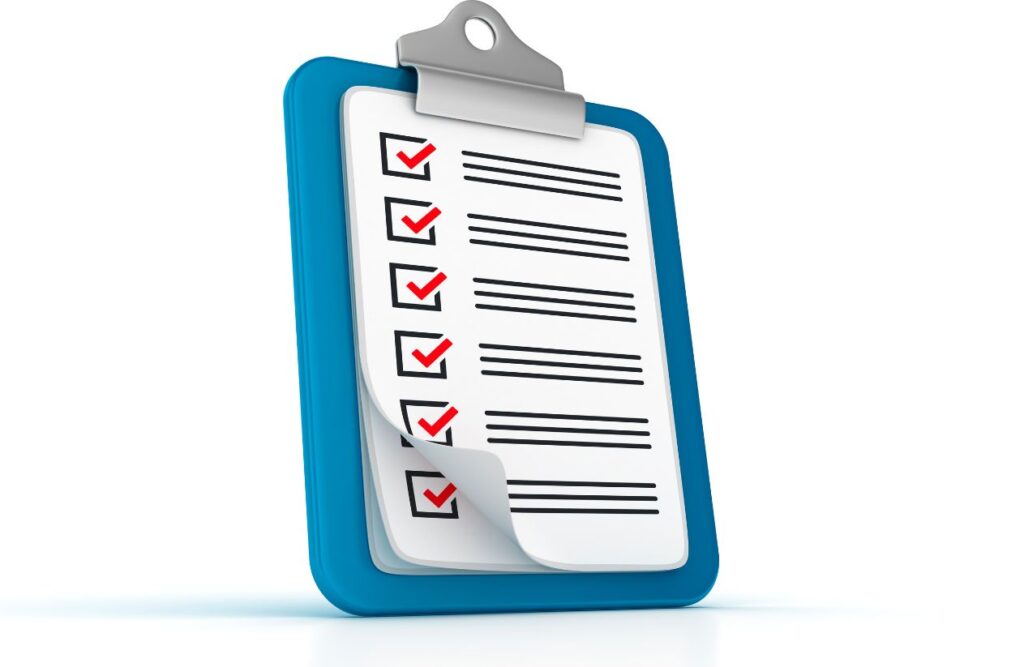Table of Contents
Planning Your First Party: Understanding Your Role as a New Event Organizer

Stepping into the shoes of an event organizer for the first time can be both exhilarating and daunting.
Your role is multifaceted, requiring you to wear many hats and juggle various responsibilities simultaneously.
Understanding what these responsibilities entail and how to manage them effectively is crucial for the success of your event.
It begins with recognizing the core areas of focus that are pivotal in your journey as a professional event planner.
Identifying Your Event’s Objectives and Audience
At the heart of any successful event is a clear, well-defined purpose. Whether it’s a corporate conference, a charity fundraiser, or a community festival, understanding the “why” behind your event will guide every decision you make.
This involves setting realistic goals, which could range from raising a certain amount of funds to achieving specific attendee engagement metrics. Equally important is identifying who your event is for.
Knowing your target audience inside out – their preferences, needs, and the experiences they seek – will enable you to tailor your event’s theme, content, and marketing strategies effectively.
Mastering Logistics and Coordination
The logistical aspect of event planning covers everything from selecting the right venue to arranging transportation and accommodations for attendees.
It involves meticulous attention to detail and the ability to anticipate needs before they become urgent.
As a new event organizer, developing strong relationships with vendors, suppliers, and other stakeholders is key.
Negotiating contracts, managing budgets, and ensuring all logistical elements align with your event timeline requires both strategic thinking and tactical prowess.
Remember, the smoother the logistics, the better the attendee experience.
Engaging and Communicating Effectively
Communication is the lifeline of any event. As the event organizer, you are the primary point of contact for attendees, speakers, sponsors, and vendors.
Establishing clear, open channels of communication will help you build trust and maintain positive relationships with all parties involved.
Effective communication also means harnessing the power of marketing and social media to create buzz around your event, driving registrations, and keeping participants informed and engaged.
From crafting compelling promotional materials to providing timely updates and feedback loops, your ability to convey your message effectively will have a direct impact on your event’s success.
Understanding your role as a new event organizer means embracing these challenges and responsibilities with confidence and creativity.
With the right approach and a focus on continuous learning, you can turn the daunting task of organizing your first event into a rewarding, enriching experience.
Key Considerations Before Jumping into Event Planning

Embarking on the journey of event planning can be exhilarating and daunting in equal measure.
As a professional event planner, it’s crucial to navigate this terrain with a blend of creativity, pragmatism, and strategic thinking.
Here are some key considerations that can help ensure your venture into event planning is both successful and rewarding.
Understanding Your Event’s Purpose and Audience
Before diving into the minutiae of planning, it’s essential to have a clear understanding of what your event aims to achieve and who it’s for.
Is the purpose to educate, celebrate, network, or raise funds? Knowing this will guide every decision, from the choice of venue to the selection of speakers and the marketing approach.
Similarly, having a deep insight into your target audience — their interests, demographics, and what they hope to gain from attending your event — will enable you to tailor the experience to their expectations and needs.
Financial Planning and Budget Management
One of the most critical aspects of event planning is establishing and adhering to a budget.
This involves forecasting the costs associated with the venue, catering, entertainment, transportation, and any other logistics, then balancing these expenses against your available funds or expected revenue.
It’s vital to keep a detailed record of all expenses and revenues, anticipate unexpected costs, and make provisions for them.
Financial foresight will prevent you from overspending and ensure the event’s financial viability.
Logistical Coordination and Risk Management
The success of an event often hinges on the seamless coordination of multiple logistical elements.
From scheduling and vendor management to compliance with health and safety regulations, each detail requires careful consideration.
It’s also prudent to conduct a thorough risk assessment to identify potential issues that could impact your event and develop contingency plans accordingly.
This ensures you’re prepared for any unforeseen circumstances and can respond swiftly and effectively, minimizing disruptions to the event experience.
Entering the field of event planning involves much more than a flair for organizing; it demands a comprehensive understanding of the event’s goals, meticulous financial oversight, and the ability to manage logistics and risks efficiently.
By keeping these considerations in mind, you can lay a solid foundation for a successful event that meets your objectives and delights your attendees.
Creating a Memorable Experience: Tips for Musicians, DJs, and Entertainers

Creating an unforgettable experience for guests is a critical component of any event, and musicians, DJs, and entertainers play a pivotal role in achieving this.
Here are some expert tips that can help elevate your performance, ensuring your act remains the highlight of the evening.
Understanding Your Audience
Before stepping onto the stage or setting up your equipment, it’s crucial to understand who you’re performing for.
The demographics, preferences, and cultural backgrounds of your audience should guide your selection of music and performance style.
Tailoring your act to fit the audience’s taste can significantly enhance their engagement and enjoyment.
Remember, a successful performance resonates with the audience, making research and customization your best tools.
Interacting with the Crowd
Interaction is key to keeping the energy high and creating a memorable experience. This could be as simple as addressing the audience directly, dedicating songs, or encouraging them to sing along.
For DJs, reading the room and adjusting your setlist accordingly can make all the difference.
Musicians and entertainers might consider incorporating interactive segments or audience participation elements into their acts.
Engagement doesn’t just happen; it’s created through thoughtful interaction and genuine connection with the crowd.
Technical Mastery and Creativity
While engaging with the audience is essential, the backbone of any memorable performance is technical excellence combined with creativity.
Ensuring you’re well-rehearsed and your equipment is in top condition prevents technical glitches that could disrupt the experience.
However, technical skill alone isn’t enough; infusing your performance with unique touches and creative flair can distinguish your act from others.
Whether it’s a novel arrangement of a popular song, an unexpected mashup, or a visually captivating stage setup, adding elements of surprise and originality can leave a lasting impression on your audience.
Remember, the goal of any entertainer is not just to perform but to create moments that the audience will cherish long after the event concludes.
By understanding your audience, interacting effectively, and delivering a technically sound and creatively vibrant performance, you’re well on your way to making your act the highlight of any event.
Crafting Your Event Planning Checklist: A Step-by-Step Guide

Event planning can at first seem like navigating through a maze—exciting yet daunting.
However, with a well-laid plan, transforming your vision into a successful event becomes an organized and enjoyable journey.
Crafting your event planning checklist will serve as your roadmap, ensuring you stay on track and nothing is overlooked.
Below is a step-by-step guide designed to aid you in laying the groundwork for your event with precision and grace.
Identifying Your Event Objectives and Audience
The very first step in your event planning checklist should be to clearly define the purpose of your event and understand who your audience is.
This involves determining what you hope to achieve, whether it’s raising awareness for a cause, generating revenue, or celebrating a significant milestone.
Equally important is having a solid grasp of who will be attending your event. Knowing your attendees’ demographics, preferences, and expectations will enable you to tailor the event elements accordingly, ensuring they resonate well with your target audience.
Setting the Logistics in Place
Once your objectives and audience are clearly defined, the next step revolves around the logistical planning of your event.
This includes selecting an appropriate date and venue that aligns with your event’s goals and audience’s availability.
Consider factors like capacity, location, accessibility, and facilities when choosing your venue. At this stage, drafting a budget is crucial; itemize all potential expenses to avoid any financial surprises down the line.
This is also the time to start thinking about vendors you may need, such as caterers, AV technicians, and decorators, and obtaining quotes from them.
Creating a Detailed Timeline and Marketing Strategy
Your checklist should include a comprehensive timeline that outlines every task leading up to the event, during the event, and post-event activities.
This timeline should allocate sufficient time for all aspects, including vendor booking, invitations, registration processes, and final walk-throughs.
Marketing your event is equally essential to ensure it reaches its intended audience and achieves its attendance goals.
Develop a marketing strategy that utilizes a mix of channels such as social media, email marketing, and traditional advertising based on your audience’s preferences.
Engaging with your potential attendees through consistent and compelling messaging will help drive registrations and generate excitement around your event.
By meticulously following these steps and checking them off your list as you go, you’ll be better positioned to organize an event that aligns with your vision, meets your goals, and provides a memorable experience for all attendees.
Remember, successful event planning is a process that requires patience, flexibility, and a keen eye for detail.
Guide For Planning Your First Party- FAQ Section
When stepping into the world of event organization for the first time, there’s a multitude of questions that can arise.
This FAQ section addresses some of the most commonly asked queries we hear from first-time event organizers. Our goal is to help you navigate through your initial planning stages with greater confidence and knowledge.
How Early Should I Start Planning?
The earlier, the better! For smaller events, aim for at least 3-6 months of planning time. Larger events may require 9-12 months to secure your ideal venue, vendors, and allow time for proper marketing.
What are some tips for sticking to my budget?
Start by defining a clear budget and dividing it into categories like venue, catering, and entertainment. Include a 10-15% contingency fund for unexpected surprises. Regularly track your expenses, compare them to your budget, and don’t hesitate to negotiate with vendors for the best possible deals.
How do I choose the right venue for my event?
Consider these key factors: the type of event and how many guests you expect, the location’s accessibility (parking, transportation), whether the ambiance fits the mood you’re envisioning, and if the venue has the necessary facilities, equipment, and aligns with any restrictions you need to be aware of.
Navigating the initial stages of event planning can be daunting, but armed with the right information and planning strategies, you can set the foundation for a successful event.
Addressing these fundamental questions not only clarifies the planning process but also instills the confidence needed to tackle the challenges that come with organizing your first event.






